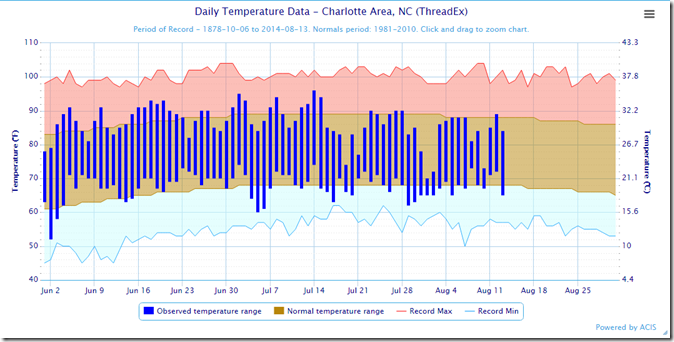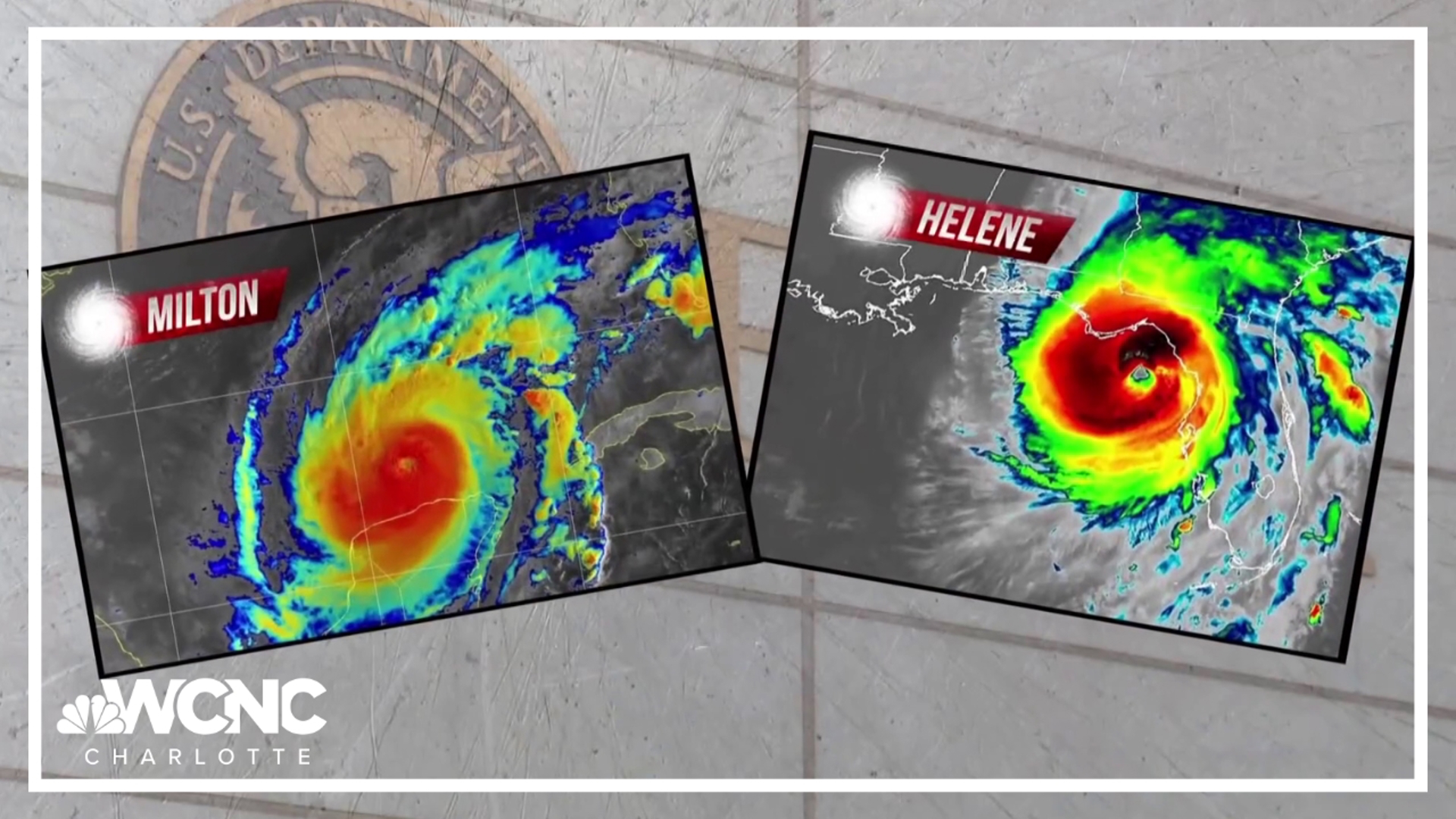CHARLOTTE, N.C. -- The summer of 2014 has been mild so far, but actually not as mild as some might think.
So far through August 13, we have had an average temperature of 77°. Making this right now the 46th-coolest summer in 136 years; the records go back to 1878.
It's actually been slightly warmer than last summer which had an average temp of 76.9°, the 43rd coolest summer on record. Plus, we still have half of August to go to see where we finally end up.
Here's the average summer temperature since 1878 in Charlotte:
Notice it's been cool but very similar to last summer, and nowhere near as cool as 2003 or 2004, which were the coolest summers around here since the 1970s.
Summer 2014 in Charlotte so far:
Notice how much the cool weather has been recently while June was actually pretty warm. In Charlotte, July and August have been cool, but June was not. As cool as August has been, around 2.7° below average, and July was about 1° below average.
People have already forgotten June, which was 1.8° above average.
June 2014:
July 2014:
August so far in Charlotte:
Does a cool summer mean a cold winter?
I get this question pretty much on a constant basis, and it's understandable. This past winter, people kept telling me this was the coolest winter they could remember-- even though last winter in Charlotte was only the 57th-coldest in 136 years.
People have already forgotten the winter of 2010-2011, which was 18th coldest, or the winter of 2009-2010, which was 9th coldest in 136 years.
Both of those winters were the coldest since the 1970s. Yet, for some reason, I heard last winter was so much colder.
What gives?
Well it's a combination of something we call recency bias-- and just poor memory.
We tend to only remember very recent events, and we also tend to think what's happening now will continue into the future.
In my experience, people's memory of weather is really not a good measure of what actually happened. We are easily influenced by our own observational bias and recent trends than by what the actual numbers tell us. I'm guilty of this all the time, so whenever I think it's been cold, wet, hot etc. I always look back at the numbers to make sure it's just not me. I mean, we can all relate to this image below, right? Same temperature, different feeling and emotions, due to what has happened recently.
So how does this relate to if a cool summer equals a cold winter? Well, meteorologically speaking, there just isn't much in common with summer patterns and winter patterns. While at times, a summer pattern can lead to a certain pattern in the winter, most times it does not, just because those seasons are just so different.
In the summer, the Jetstream retreats and doesn't give us a lot of signals to winter. To illustrate this, let's look at the top 30 coldest summers and see if they correlated to the top 30 coldest winters at all in Charlotte. I highlighted summers and winters that were both cold.
There were some that correlated, but of the top 30, just 20-percent of the time, did a cold summer equal a cold winter.
Conclusion:
While yes, it's been a mild summer, there isn't much to read into what that means for our winter pattern. Which, by the way, I will release my ninth-annual Winter Outlook in October. It's just too early right now as the pattern that sets up this winter will become clearer this Autumn. The biggest key might be how El Nino forms and when.
Stay tuned!


